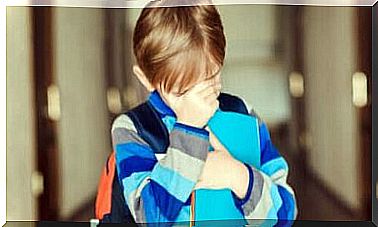5 Attitudes That Encourage Irresponsibility In Children

Raising responsible children and young people is one of the most important goals of every parent. Understanding the value of meeting their obligations will bring them great benefits in the future. However, sometimes adults maintain a certain attitude that inadvertently encourages irresponsibility in their children.
In order for children to be responsible, we must provide them with the right conditions. In other words, there must be clear rules and a space in which they can decide to act responsibly. We often fail at some point in this process, hindering the acquisition of this important value. So pay attention to the following poses and try to correct them if you identify with them.
Parental Views Encouraging Irresponsibility in Children

Issues that encourage irresponsibility in children: we don’t let our children make decisions
In order to teach our children responsibility, it is necessary that we give them sufficient space to make certain decisions. A young person cannot take responsibility if he is not allowed to.
For example, if we’re constantly whining and insisting that our kids do their homework and stay by their side all the time, we’re not giving them space. They will be able to be responsible if we just let them do their homework. If we trust that they will do it completely and on time without having to be on top of it all the time.
We don’t explain the rules
What we consider irresponsible often stems from a lack of clarity in our rules. It is important that the rules are clear so that our children can follow them and we can evaluate their performance.
For example, let’s imagine our teen going on one of his or her first outings with friends. We ask our child to come home early. Such a vague guideline is not appropriate because it is not clear or easy to follow. ‘Early’ is a relative and subjective term. If we tell them to come home before 10am instead, they know what to do. This way we can easily measure whether they have been responsible.
Not allowing them to experience the consequences leads to irresponsibility
As parents, one of our biggest failures is not letting our children experience the natural consequences of their actions. In an effort to spare them trouble and suffering, we ultimately deprive them of the opportunity to learn valuable lessons.
Therefore, if the child forgets to put a book in his school bag, it is reasonable that he experiences the consequences of his forgetfulness. If mom or dad rush home to grab the book and take it to school, they will encourage irresponsibility.

Problems that encourage irresponsibility in children: we don’t apply consequences consistently
In connection with the above, when establishing discipline, we must be careful to apply consequences consistently and coherently. That is, they must be related to the mistake committed by the child. Also, we must apply them when the rule is broken.
Children’s irresponsibility is often motivated by the fact that the consequences are not always visible. Therefore, when we say that not following the curfew results in a weekend without going out, we can’t often make exceptions or change our mind at the last minute.
We have no control over our own emotional state
Finally, it is important that parents can maintain discipline without falling into emotional lack of control. In other words, rules and defined consequences are established and applied without changing the way we treat the child.
If the child has not cleaned up his room or finished his homework, there are a number of consequences. This must be met. But that doesn’t make it right for parents to yell, make accusations, or get mad at the child. It is the consequence that teaches, so creating a negative emotional climate is unnecessary and harmful. In other words, parents must learn to regulate their own emotions.
Fighting irresponsibility in children, a task for everyone
In short, if you feel that your child is behaving irresponsibly, try to tackle the problem together. Before blaming them, try to look for where you could improve your parenting work. Maybe the rules aren’t clear enough. Or are you not giving them the space and confidence they need to show you that they can be responsible.
Always remember to be patient, stay calm, and let the consequences settle. This is the best way for young people to experience responsibility. By working together, you will be able to develop more mature and autonomous behavior.







